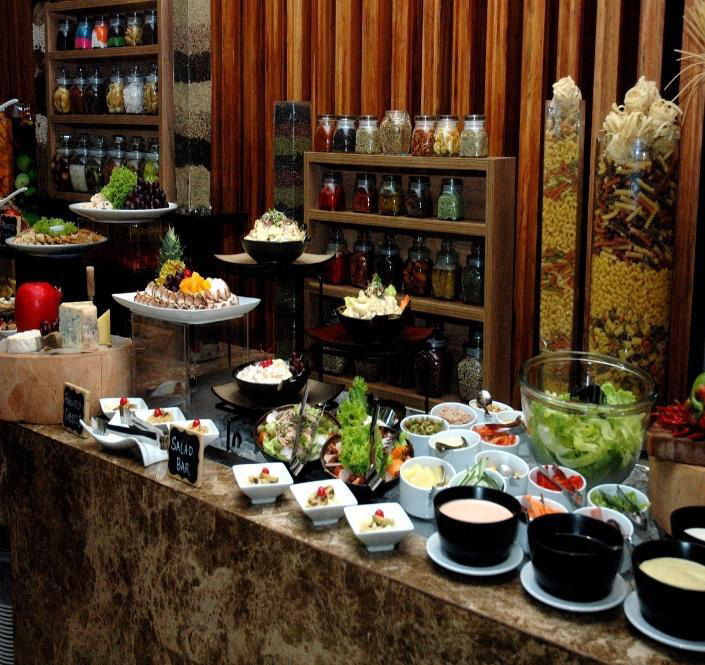The sad desk lunch, a tired symbol of modern office life, has long been seen as an unavoidable side effect of busy workdays. Whether it’s a soggy sandwich grabbed between meetings, or an instant noodle cup inhaled while answering emails, these uninspiring meals have become part of the corporate routine.
But as companies increasingly recognise the link between employee wellbeing, engagement, and performance, there’s a growing movement to reimagine the corporate meal experience altogether.
In today’s talent-driven economy, small details matter. Providing high-quality, chef-prepared meals is no longer just about convenience or perks; it’s a powerful way to influence morale, strengthen company culture, and drive productivity.
More than just food: why corporate meals matter
Meals are deeply emotional and social experiences. A 2022 study published in Nature Human Behaviour found that shared meals significantly enhance workplace connectedness, increase job satisfaction, and improve individual performance (Nature Human Behaviour, 2022).
Mealtimes aren’t just breaks, they are cultural anchors that help build stronger, more cohesive teams.
When companies invest in better dining experiences, they tap into an ancient human instinct: sharing food creates bonds.
Moreover, a Gallup poll consistently shows that employees who feel cared for by their employer are more engaged, more productive, and less likely to leave the organisation. Something as simple as providing fresh, well-made meals signals that a company values its people beyond their output, the reality is that employees do notice.
The science behind better meals and better performance
 Nutrition plays a measurable role in cognitive performance and emotional resilience. Research published in Nutrients in 2019 highlights how diets rich in vegetables, lean proteins, and healthy fats improve concentration, memory, and even mood regulation (Adan et al., 2019).
Nutrition plays a measurable role in cognitive performance and emotional resilience. Research published in Nutrients in 2019 highlights how diets rich in vegetables, lean proteins, and healthy fats improve concentration, memory, and even mood regulation (Adan et al., 2019).
Contrast this with the common “sad lunch”, highly processed, carb-heavy meals that cause blood sugar spikes and crashes, leading to afternoon slumps, irritability, and reduced decision-making ability. Companies that provide chef-prepared, nutritionally balanced meals give their teams a real, science-backed advantage.
It’s not just about avoiding hunger; it’s about optimising brain function, emotional stability, and energy levels throughout the day.
Rebuilding culture one meal at a time
Beyond the individual benefits, corporate meals serve as an important cultural touchpoint. Mealtime is a natural opportunity for spontaneous conversations, mentorship moments, and cross-functional collaboration, all things that rarely happen when people are glued to their desks.
Tech giants, famously, designed their campuses with food areas that encourage “casual collisions” between employees from different teams. They recognised that a vibrant dining culture can spark innovation, not just satisfy hunger. For smaller or mid-sized companies, the same principle applies. A well-executed meal program can turn lunch into a valuable daily ritual that reinforces community, breaks down silos, and nurtures a sense of belonging.
The ROI of investing in meals
 While providing chef-prepared meals may seem like a significant expense, the return on investment can be substantial. Improved employee engagement correlates with lower absenteeism, higher retention, and greater productivity — outcomes that directly impact a company’s bottom line.
While providing chef-prepared meals may seem like a significant expense, the return on investment can be substantial. Improved employee engagement correlates with lower absenteeism, higher retention, and greater productivity — outcomes that directly impact a company’s bottom line.
A report from the World Health Organization (WHO) notes that workplaces promoting better nutrition could reduce sick leave by up to 27% and increase productivity by up to 11% (WHO, 2003).
Viewed through this lens, elevating the corporate meal experience isn’t an indulgence, it’s smart business.
Rebuilding culture one meal at a time
Organisations don’t need jumbo-sized budgets to make a meaningful change. Even small improvements can have a big impact:
- Partner with local caterers or chefs who prioritise fresh, seasonal ingredients.
- Offer variety to accommodate diverse tastes and dietary needs.
- Create welcoming spaces where people can gather, sit down, and step away from work.
- Solicit feedback to continually refine the meal program based on employee preferences.
At its core, the goal is to create a meal experience that feels intentional, not transactional.
Conclusion: it’s time to say goodbye
The sad desk lunch belongs to an era when employee wellbeing was an afterthought. Today’s organisations understand that people are their greatest asset, and that investing in small but meaningful experiences, like better meals, pays dividends in engagement, innovation, and loyalty.
Saying goodbye to the sad desk lunch isn’t just about better food. It’s about building better companies.










